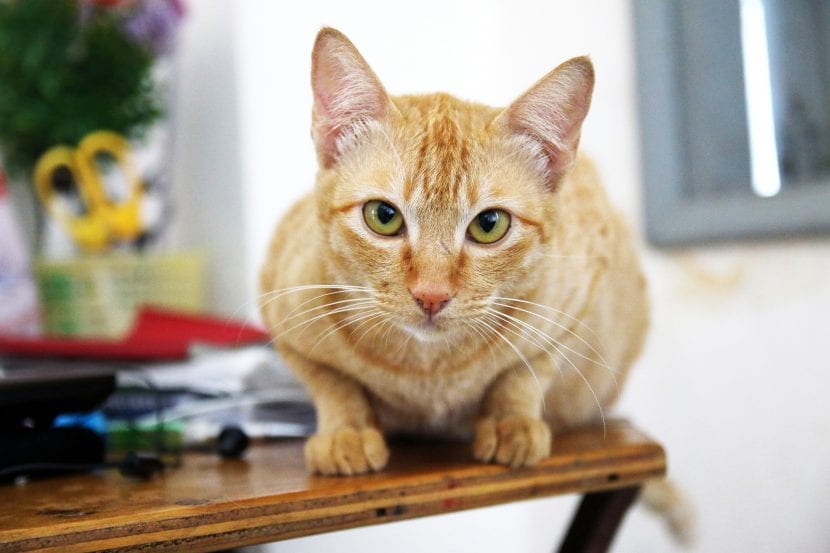
One of the most intense pain that a feline can have is abdominal pain, but of course, this furry cannot express in words how it feels, and even if it could, it is most likely that it would not, since in its natural habitat it shows weakness it is a serious problem.
While he now lives in the safety of a home, the felines' survival instinct remains intact under his skin. Thus, sometimes it is very difficult to know what to do if my cat has abdominal pain as often you will begin to show symptoms when you can no longer bear it.
How do you know if you have abdominal pain?
Knowing this, the first thing we have to find out is whether or not he is really sick. To do this, we have to look at their behavior. If you are listless or sad, if you are losing your appetite and weight, or if you have diarrhea or vomiting, you most likely have abdominal pain. Any small change in your routine should make us suspicious, even if it seems like an unimportant detail.
For example, if every day at a certain time, say at ten o'clock in the morning, he enters the kitchen and eats but one day he does not, we will have a reason to worry, why? Because the cat is an animal of habit. Every day you follow the exact same routine, unless you are sick.
I'll tell you something: one of my cats, Susty, would come home at the same time every night, go to the bedroom and eat. One day, instead of going to the trough, lay down on the floor. I got closer and noticed that he was breathing a little faster than normal. I took her to the vet, and sure enough, she was sick. Ten days he had diarrhea. I had a pretty bad time, because where he sat, he stained. He finally got over it and has never had anything so serious again.
Therefore, I insist, observe your cat's behavior and be very attentive to any changes that may occur, because it is the only way to know for sure if they are sick or not.
What to do to help you?
If you show any symptoms, it is important to take him to the vet for treatment, as there are various causes that cause abdominal pain in cats, such as colic, intestinal parasites, hairballs, spoiled food or ingestion of a toxic substance. Depending on what caused the problem, you will need one treatment or another.
For example:
- If you have colic, the professional will administer antispasmodics.
- If what you have are intestinal parasites, you can put a antiparasitic pipette.
- If you have hairballs, you can smear the leg with malt once a day to expel them.
- If you have eaten something that was not too good, you will have to follow a soft diet (boneless chicken rice) about 3-5 days.
- If you have ingested poison, it may be necessary give 1 gram of activated charcoal for every half a kilo of weight.

Whenever you suspect that something is wrong with your friend, don't hesitate to take him to the vet.